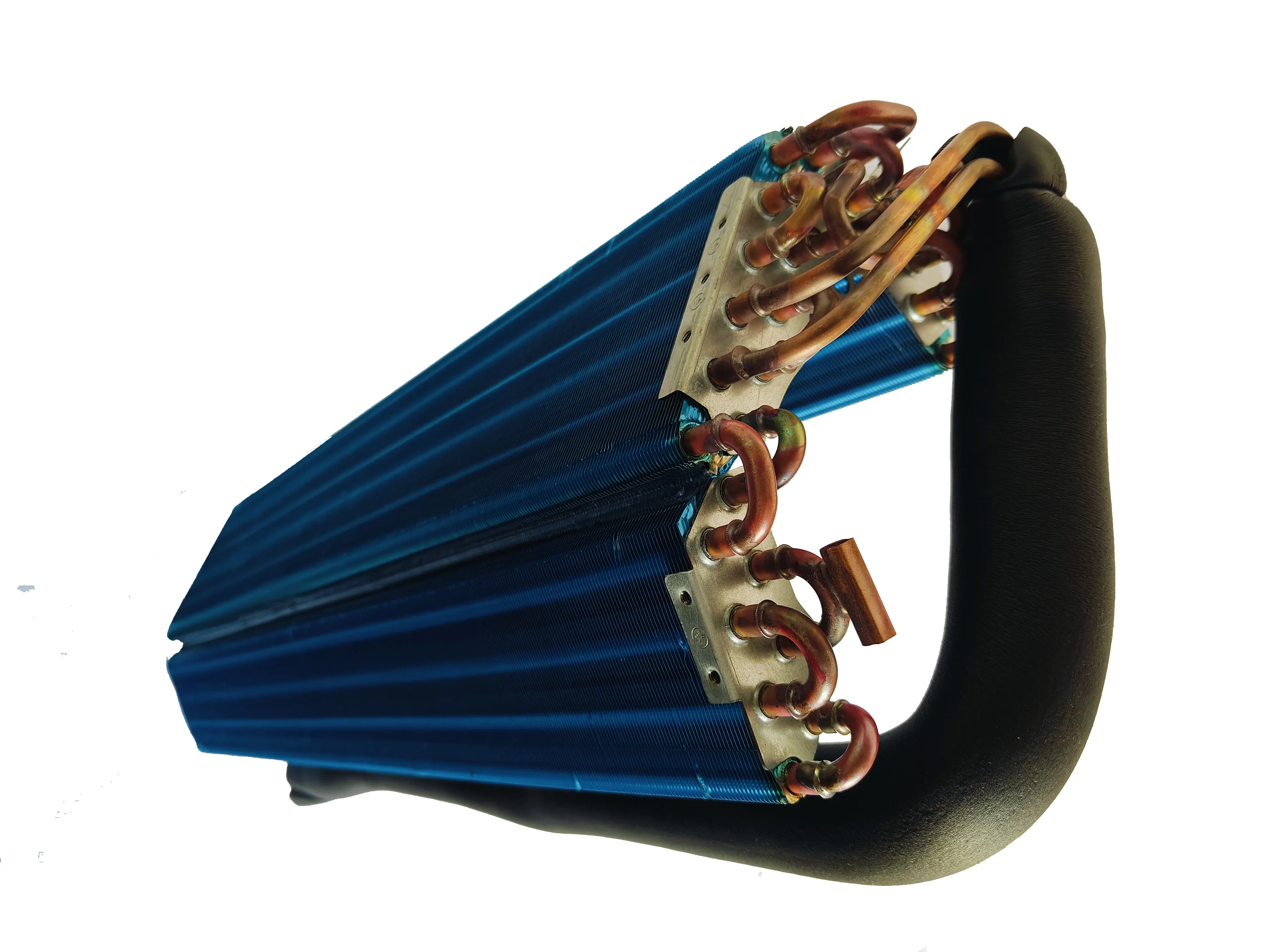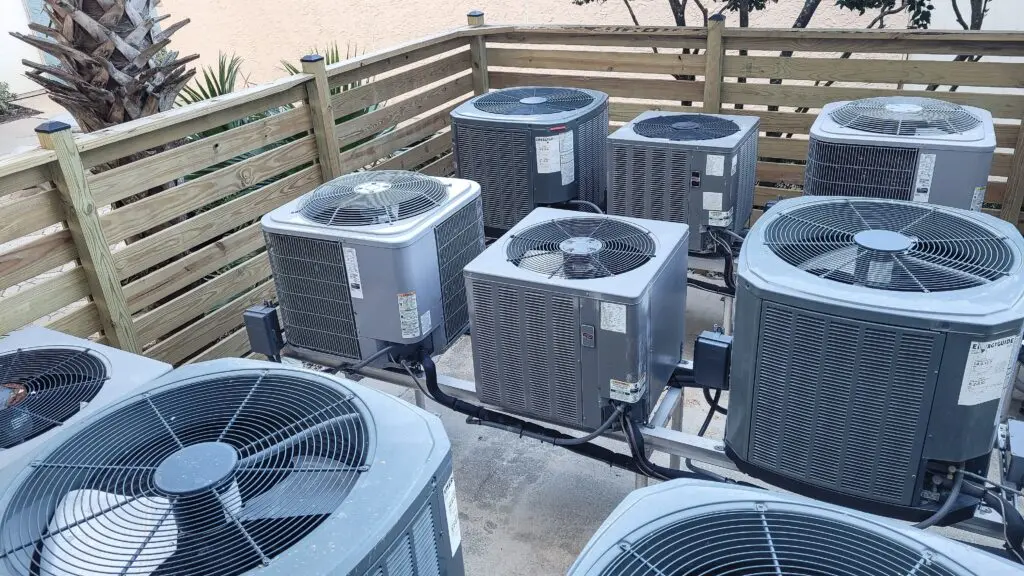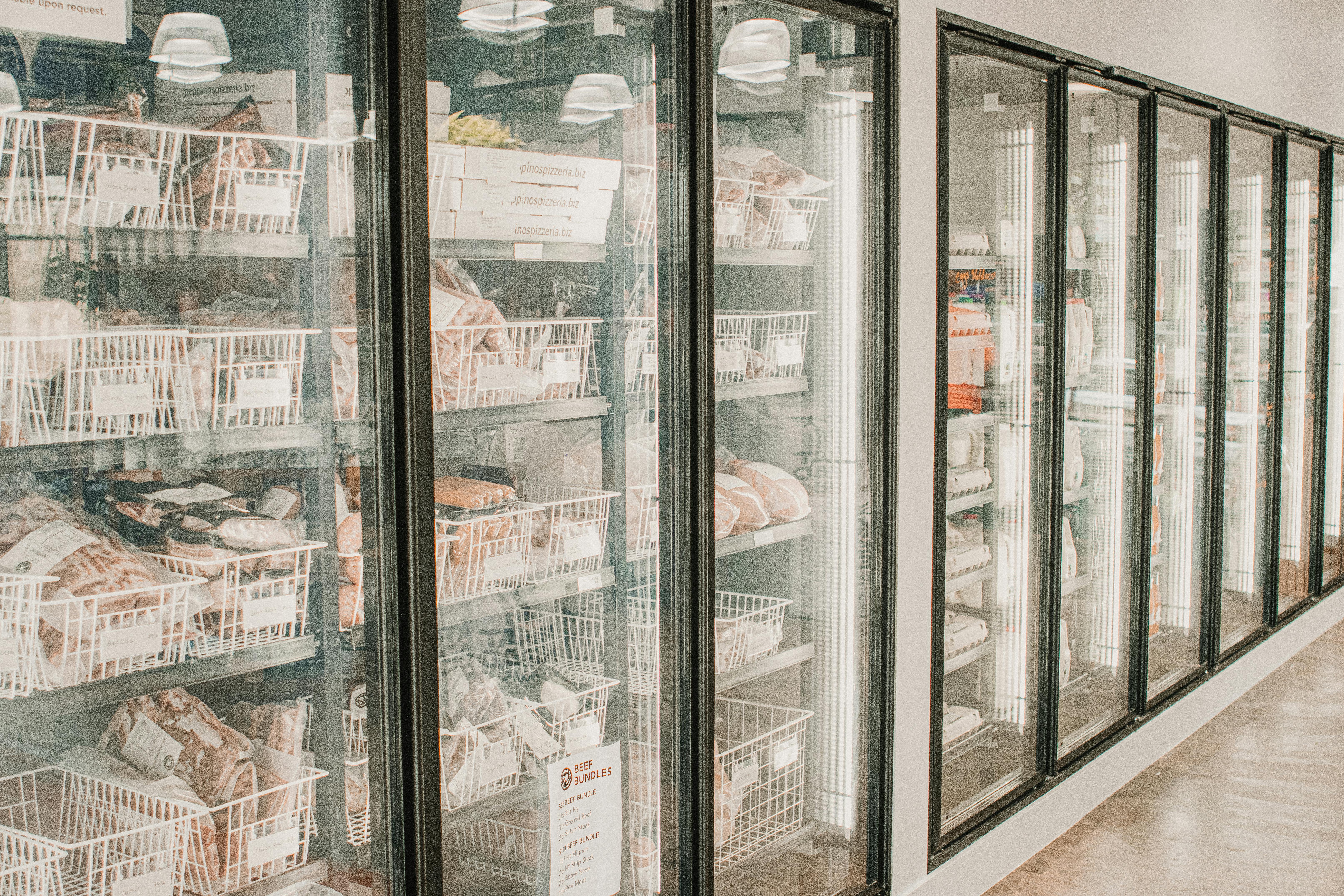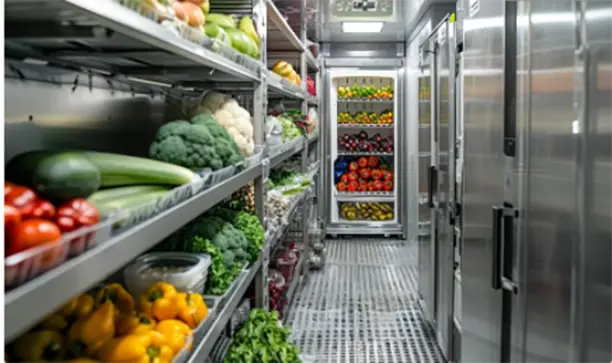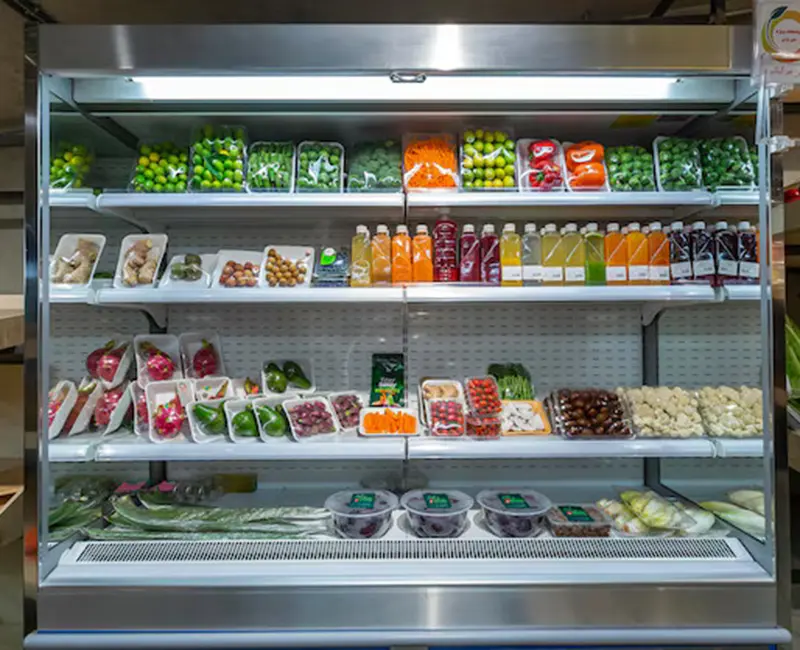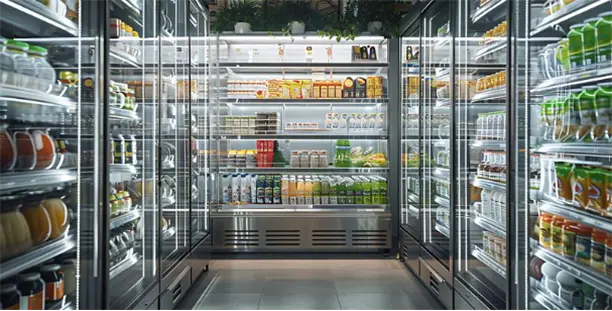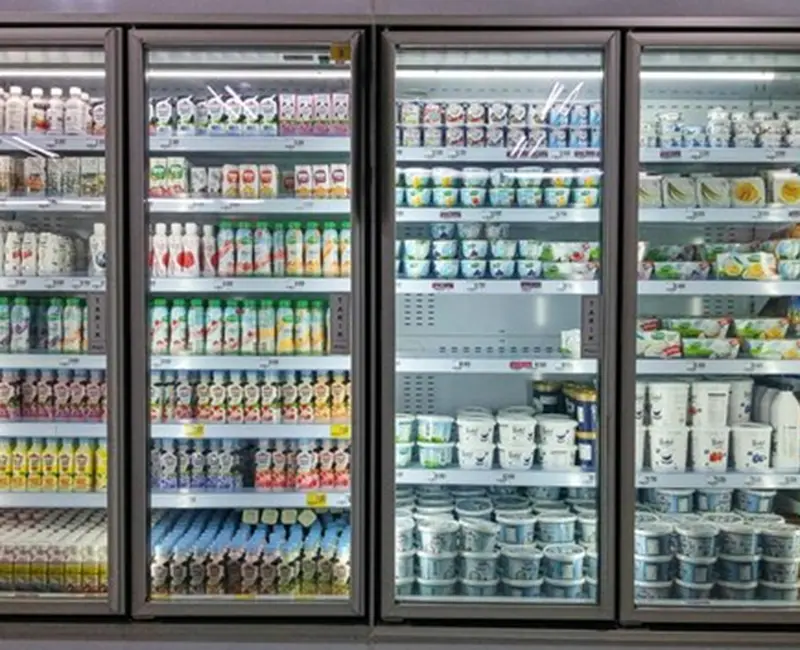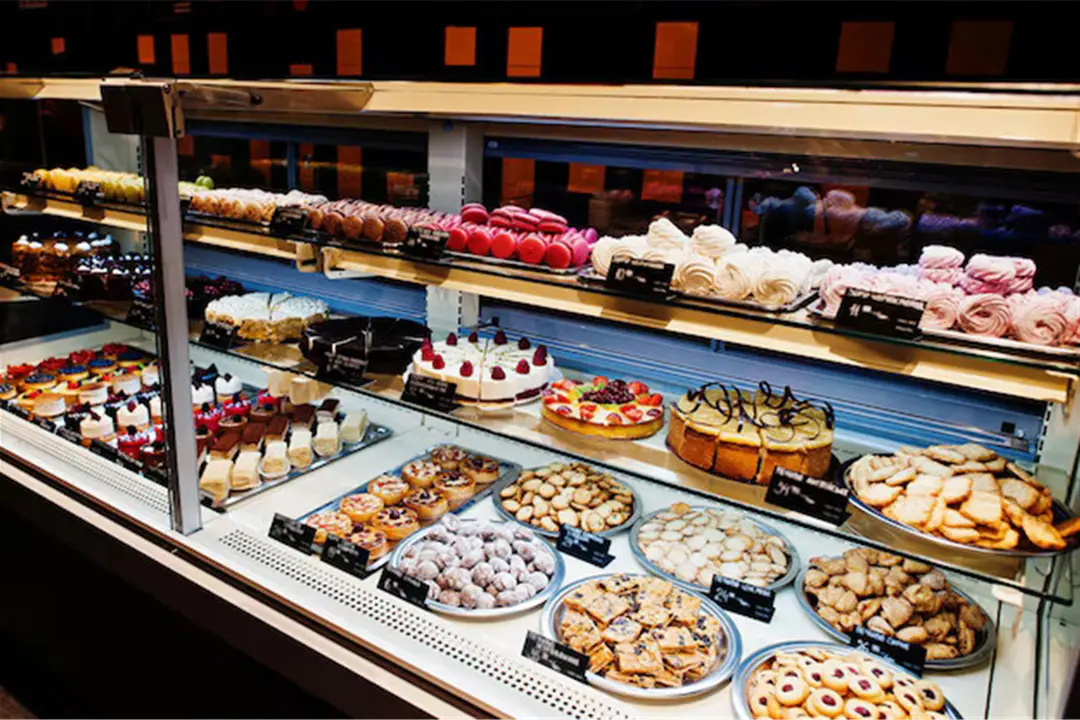What are the applications of Wire Tube Condenser?
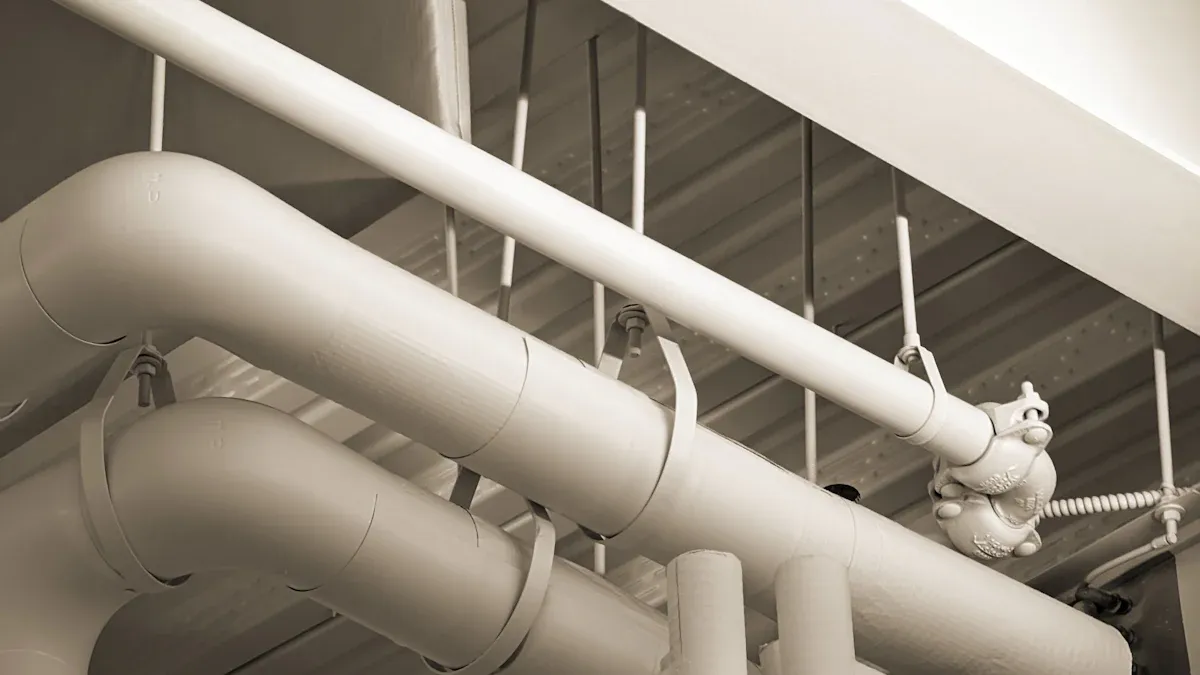
Wire tube condensers serve as a cornerstone in refrigeration and cooling systems, offering unmatched efficiency and durability. Their versatile design supports a wide range of applications across industries. In commercial air conditioning, these condensers enhance indoor air quality and comfort in shopping malls, office buildings, and hotels. The food and beverage industry, along with the retail and hospitality sectors, relies on them for efficient cooling in supermarkets, restaurants, and cold storage facilities. Additionally, the industrial sector, including manufacturing and pharmaceuticals, depends on wire tube condensers for precise temperature control, driven by the growing demand for reliable cooling solutions.
Key Takeaways
- Wire tube condensers help with cooling in many systems like fridges, air conditioners, and cars.
- They improve air quality and comfort in places like malls and hotels, which is important for businesses.
- In hospitals, they keep vaccines and medicines at the right temperature.
- These condensers last long and save energy, lowering electricity costs.
- They can be made to fit different industries for the best cooling.
- Their strong build lets them handle tough conditions and work well for years.
- Wire tube condensers use eco-friendly refrigerants and save energy, helping the environment.
- Using wire tube condensers makes cooling systems work better and more reliably in many areas.
Applications in Refrigeration Equipment
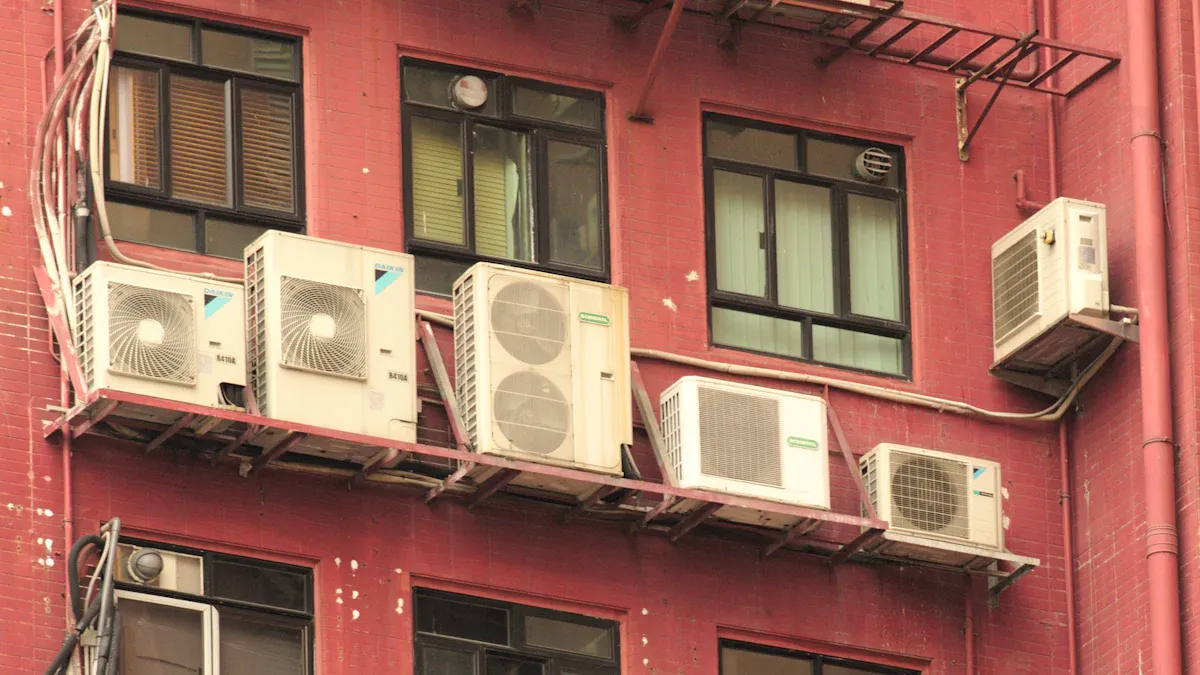
Domestic Refrigerators and Freezers
Wire tube condensers play a vital role in the operation of domestic refrigerators and freezers. These appliances rely on efficient heat dissipation to maintain optimal cooling performance. The wire tube condenser, with its robust design, ensures consistent thermal regulation by effectively transferring heat away from the refrigerant. This process keeps food and beverages fresh for extended periods. Manufacturers often choose this type of condenser due to its durability and compatibility with modern refrigerants. Its compact structure also allows seamless integration into various refrigerator models, catering to diverse household needs.
Commercial Display Cabinets and Beverage Coolers
In commercial settings, display cabinets and beverage coolers require reliable cooling systems to preserve product quality. Wire tube condensers excel in these applications by providing consistent and energy-efficient cooling. Retailers use these condensers in supermarkets, convenience stores, and cafes to maintain the freshness of perishable goods. Their ability to handle high cooling demands makes them ideal for environments with frequent door openings. Additionally, their low maintenance requirements reduce operational costs, making them a preferred choice for businesses aiming to optimize efficiency.
Medical Refrigeration Systems
Medical refrigeration systems demand precise temperature control to store sensitive materials such as vaccines, medications, and biological samples. Wire tube condensers meet these stringent requirements by delivering stable and reliable cooling performance. Laboratories, hospitals, and research facilities depend on these condensers to ensure the integrity of temperature-sensitive items. Their robust construction and high thermal efficiency make them suitable for ultra-low temperature applications. Furthermore, their compliance with environmental standards aligns with the healthcare industry's focus on sustainability.
Ice Makers and Dehumidifiers
Ice makers and dehumidifiers rely heavily on efficient cooling systems to perform their respective functions. Wire tube condensers play a pivotal role in these appliances by ensuring optimal heat dissipation and energy efficiency. Their robust design and thermal performance make them an ideal choice for these applications.
In ice makers, maintaining a consistent cooling cycle is essential for producing high-quality ice. Wire tube condensers facilitate this process by effectively transferring heat away from the refrigerant. This ensures that the ice-making process remains uninterrupted, even in high-demand environments such as restaurants, hotels, and catering services. Their compact structure allows manufacturers to integrate them seamlessly into various ice maker designs, from small countertop units to large industrial machines.
Dehumidifiers, on the other hand, require precise temperature control to remove excess moisture from the air. Wire tube condensers enhance the efficiency of this process by providing reliable heat exchange capabilities. By dissipating heat effectively, they help maintain the optimal operating conditions needed for dehumidification. This makes them a preferred choice for residential, commercial, and industrial dehumidifiers. Their durability ensures long-term performance, even in environments with high humidity levels.
The versatility of wire tube condensers allows them to meet the diverse requirements of ice makers and dehumidifiers. Their compatibility with modern refrigerants aligns with global environmental standards, making them a sustainable option for manufacturers. Additionally, their low maintenance needs and energy-saving properties contribute to reduced operational costs, benefiting both businesses and consumers.
Tip: When selecting cooling systems for ice makers or dehumidifiers, consider the efficiency and durability of the condenser. Wire tube condensers offer a reliable solution for achieving optimal performance in these appliances.
Applications in Air Conditioning Systems
Residential Air Conditioning Units
Wire tube condensers play a crucial role in residential air conditioning units by ensuring efficient heat exchange. These condensers help maintain comfortable indoor temperatures by dissipating heat effectively from the refrigerant. Their compact design allows seamless integration into various types of residential air conditioners, including split systems and window-mounted units. Homeowners benefit from their energy efficiency, which reduces electricity consumption and lowers utility bills. Additionally, their durability ensures long-term performance, even under continuous operation during peak summer months. Manufacturers often choose wire tube condensers for their compatibility with modern refrigerants, aligning with global environmental standards.
Commercial HVAC Systems
In commercial HVAC systems, wire tube condensers contribute to maintaining optimal indoor air quality and temperature control in large spaces. Shopping malls, office buildings, and hotels rely on these condensers to handle high cooling demands efficiently. Their robust construction ensures reliable performance in environments with heavy usage. Wire tube condensers also support energy-saving initiatives by reducing power consumption, which is critical for businesses aiming to minimize operational costs. Furthermore, their low maintenance requirements make them a cost-effective solution for commercial applications. By providing consistent cooling, they enhance comfort and productivity in commercial settings.
Portable and Compact Air Conditioners
Portable and compact air conditioners depend on wire tube condensers for their lightweight and efficient cooling capabilities. These condensers enable manufacturers to design compact units without compromising performance. Their ability to dissipate heat effectively ensures rapid cooling, making them ideal for small spaces such as dorm rooms, home offices, and temporary workspaces. Consumers appreciate the portability and energy efficiency of these air conditioners, which are often equipped with wire tube condensers to meet modern cooling standards. The durability of these condensers ensures reliable operation, even in portable units subjected to frequent movement and varying environmental conditions.
Note: Wire tube condensers offer a versatile and sustainable solution for air conditioning systems across residential, commercial, and portable applications. Their energy efficiency and durability make them a preferred choice for manufacturers and consumers alike.
Applications in Industrial Cooling Systems
Cold Storage and Warehousing
Cold storage facilities and warehouses depend on efficient cooling systems to preserve perishable goods and maintain optimal storage conditions. Wire tube condensers provide reliable and consistent cooling performance, making them an essential component in these environments. Their optimized heat transfer capabilities, achieved through internally grooved tubes and louvered fins, ensure high thermal efficiency. These features allow cold storage units to handle large cooling capacities, ranging from 80 to 920 kW, which is critical for industrial-scale operations.
The integration of fan modules designed for maximum efficiency and minimal noise further enhances their performance. This combination of features ensures that cold storage facilities can maintain precise temperature control, even under heavy usage. Businesses in the food, pharmaceutical, and logistics industries benefit from the durability and energy-saving properties of wire tube condensers, which contribute to reduced operational costs and improved sustainability.
Process Cooling in Manufacturing
Manufacturing processes often generate significant heat, requiring effective cooling solutions to maintain equipment performance and product quality. Wire tube condensers play a pivotal role in process cooling by enhancing heat transfer and ensuring stable temperature regulation. Their design employs advanced methodologies such as the effectiveness-number of transfer units (ɛ-NTU) and log mean temperature difference (LMTD) approaches, which optimize cooling efficiency.
| Aspect | Description |
|---|---|
| Heat Transfer | Focuses on heat transfer enhancement techniques in manufacturing processes. |
| Design Methodology | Utilizes ɛ-NTU and LMTD approaches for optimal cooling performance. |
| Performance Charts | Describes performance using crucial dimensionless parameters. |
| Configuration | Analyzes both parallel and counter flow configurations for design analysis. |
Studies reveal that wire tube condensers perform exceptionally well under stratified flow conditions, yielding higher performance factors compared to annular flow. They also demonstrate the ability to convert pressure drops into temperature differences for refrigerants like R-134a and R-600a. These attributes make them indispensable in industries such as chemical processing, metal fabrication, and electronics manufacturing, where precise cooling is essential.
Industrial Refrigeration Units
Industrial refrigeration units rely on wire tube condensers to achieve high efficiency and consistent cooling performance. These condensers enhance heat exchange processes, enabling refrigeration systems to liquefy refrigerants at lower temperatures. This results in stable refrigeration effects, which are crucial for maintaining the integrity of temperature-sensitive products.
| Feature | Description |
|---|---|
| High Efficiency | Enhances heat exchange processes for improved cooling performance. |
| Energy Saving | Recovers waste heat, increasing overall energy efficiency. |
| Environmental Benefits | Supports lower energy consumption, reducing environmental impact. |
| Stable Refrigeration Effect | Maintains consistent refrigeration effects at lower temperatures. |
| Advanced Research | New models offer higher heat transfer efficiency and lower resistance loss. |
The energy-saving capabilities of wire tube condensers also contribute to reduced environmental impact, aligning with global sustainability goals. Their robust construction ensures long-term reliability, even in demanding industrial applications. Industries such as food processing, beverage production, and petrochemical storage benefit from their ability to handle large-scale cooling demands efficiently.
Tip: When selecting cooling systems for industrial applications, consider the capacity, efficiency, and environmental impact of the condenser. Wire tube condensers provide a reliable and sustainable solution for diverse industrial needs.
Applications in Heat Pump Systems
Ground Source Heat Pumps
Ground source heat pumps utilize the stable temperature of the earth to provide efficient heating and cooling solutions. Wire tube condensers play a pivotal role in these systems by facilitating effective heat exchange between the refrigerant and the ground loop. Their robust design ensures consistent thermal performance, even in extreme weather conditions. This reliability makes them an ideal choice for residential and commercial applications where energy efficiency is a priority.
The compact structure of wire tube condensers allows seamless integration into ground source heat pump systems. This feature is particularly beneficial for installations in urban areas with limited space. Additionally, their compatibility with environmentally friendly refrigerants aligns with global sustainability goals. By enhancing the overall efficiency of ground source heat pumps, these condensers contribute to reduced energy consumption and lower greenhouse gas emissions.
Water Source Heat Pumps
Water source heat pumps rely on bodies of water, such as lakes, rivers, or underground aquifers, to transfer heat. Wire tube condensers enhance the performance of these systems by ensuring efficient heat dissipation. Their advanced thermal properties enable water source heat pumps to maintain optimal operating conditions, even in high-demand scenarios. This capability is crucial for applications in large-scale commercial buildings, such as hotels and office complexes.
The durability of wire tube condensers ensures long-term performance in water source heat pump systems. Their resistance to corrosion and wear makes them suitable for use in environments with varying water quality. Furthermore, their energy-saving properties help reduce operational costs, making them a cost-effective solution for businesses. By supporting the efficient operation of water source heat pumps, wire tube condensers contribute to improved indoor comfort and reduced environmental impact.
Hybrid Heating and Cooling Systems
Hybrid heating and cooling systems combine multiple energy sources to optimize efficiency and performance. Wire tube condensers are integral to these systems, providing reliable heat exchange capabilities. Their versatility allows them to adapt to the varying demands of hybrid systems, which often switch between heating and cooling modes. This adaptability ensures consistent performance throughout the year, regardless of seasonal changes.
In hybrid systems, wire tube condensers support the integration of renewable energy sources, such as solar or geothermal energy. This feature aligns with the growing demand for sustainable and energy-efficient solutions. Their compact and lightweight design simplifies installation, making them suitable for both residential and commercial applications. By enhancing the efficiency of hybrid heating and cooling systems, wire tube condensers help reduce energy consumption and promote environmental sustainability.
Note: Wire tube condensers are a critical component in heat pump systems, offering energy efficiency, durability, and compatibility with modern refrigerants. Their role in ground source, water source, and hybrid systems underscores their importance in advancing sustainable heating and cooling technologies.
Applications in Automotive and Transportation
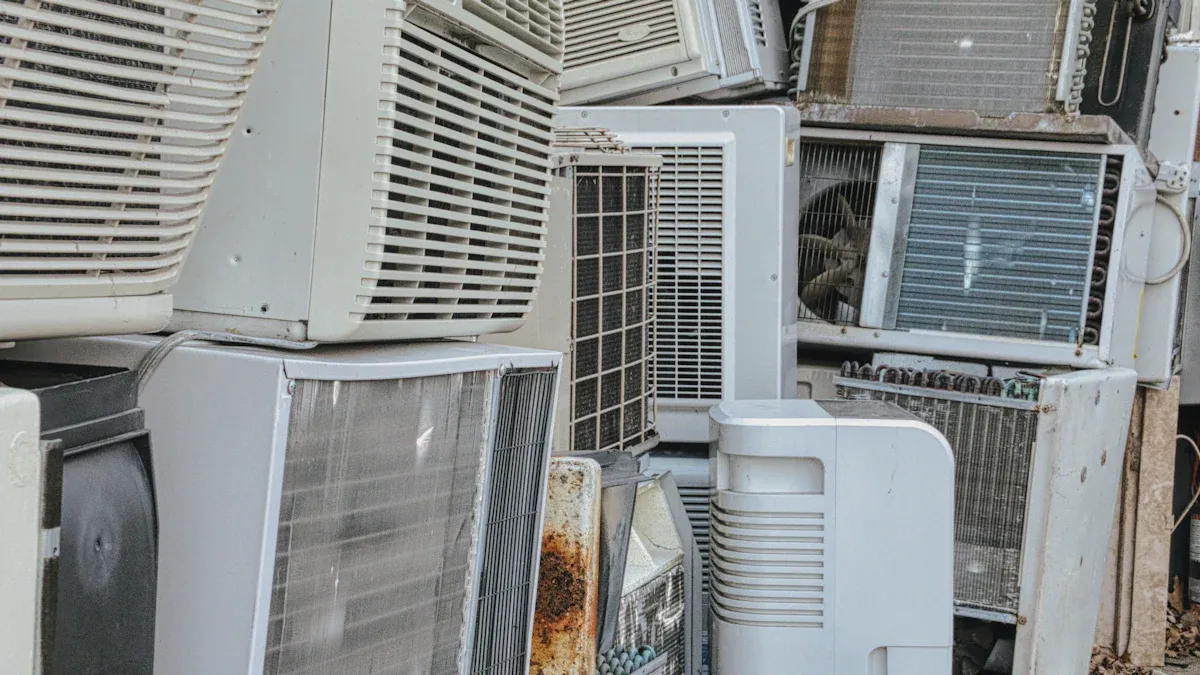
Automotive Air Conditioning Systems
Automotive air conditioning systems rely on efficient cooling components to maintain comfortable cabin temperatures. Wire tube condensers play a critical role in these systems by facilitating effective heat exchange. Their compact design allows seamless integration into vehicles of all sizes, from sedans to heavy-duty trucks. These condensers ensure rapid cooling by dissipating heat from the refrigerant, which enhances passenger comfort during long drives or extreme weather conditions.
The durability of wire tube condensers makes them suitable for the demanding conditions of automotive applications. They withstand vibrations, temperature fluctuations, and exposure to various environmental factors. This reliability ensures consistent performance over the vehicle's lifespan. Additionally, their compatibility with modern refrigerants aligns with the automotive industry's shift toward environmentally friendly solutions. By improving energy efficiency, wire tube condensers contribute to reduced fuel consumption and lower emissions, supporting global sustainability goals.
Refrigerated Transport Vehicles
Refrigerated transport vehicles require precise temperature control to preserve perishable goods during transit. Wire tube condensers provide the necessary cooling efficiency to maintain stable temperatures in refrigerated compartments. These condensers enable the refrigeration system to handle high cooling demands, even in challenging conditions such as long-distance transportation or high ambient temperatures.
The robust construction of wire tube condensers ensures reliable performance in refrigerated trucks, trailers, and vans. Their ability to dissipate heat effectively minimizes the risk of temperature fluctuations, which is crucial for industries like food distribution, pharmaceuticals, and logistics. Furthermore, their energy-saving properties help reduce operational costs for fleet operators. By ensuring the integrity of temperature-sensitive products, wire tube condensers play a vital role in maintaining supply chain efficiency.
Cooling Systems in Electric and Hybrid Vehicles
Electric and hybrid vehicles depend on advanced cooling systems to regulate the temperature of batteries, power electronics, and cabin interiors. Wire tube condensers enhance the performance of these systems by providing efficient heat dissipation. Their lightweight and compact design make them ideal for integration into modern electric and hybrid vehicle architectures.
In battery cooling systems, wire tube condensers help prevent overheating, which extends battery life and ensures optimal performance. For power electronics, these condensers maintain stable operating temperatures, reducing the risk of component failure. Additionally, they contribute to cabin cooling by supporting air conditioning systems, ensuring passenger comfort.
The use of wire tube condensers in electric and hybrid vehicles aligns with the industry's focus on energy efficiency and sustainability. Their compatibility with eco-friendly refrigerants and ability to support renewable energy sources make them a preferred choice for manufacturers. By enhancing the reliability and efficiency of cooling systems, wire tube condensers contribute to the advancement of green transportation technologies.
Tip: When selecting cooling components for automotive applications, consider the durability, efficiency, and environmental compatibility of the condenser. Wire tube condensers offer a reliable solution for meeting these requirements.
Benefits of Wire Tube Condensers
Energy Efficiency and Cost Savings
Wire tube condensers offer significant energy efficiency and cost-saving benefits, making them a preferred choice in cooling applications. Their advanced heat exchange technology enhances thermal performance, allowing systems to operate with reduced energy consumption. This efficiency directly translates into lower electricity bills for both residential and commercial users.
Several case studies highlight the economic advantages of wire tube condensers. Technological advancements in their design have improved production efficiency and product quality, leading to measurable cost reductions. Additionally, their superior heat transfer capabilities ensure optimal cooling performance, even under high-demand conditions. Compliance with evolving regulations, such as the EU’s Green Deal, further supports sustainable practices while reducing operational expenses. These factors make wire tube condensers an environmentally friendly and economically viable solution for modern cooling systems.
Durability and Longevity
Durability is a hallmark of wire tube condensers, ensuring long-term reliability in various applications. Their robust construction withstands harsh operating conditions, including temperature fluctuations, vibrations, and exposure to corrosive environments. This resilience minimizes the risk of system failures, reducing maintenance costs and downtime.
Manufacturers design wire tube condensers with high-quality materials that resist wear and tear, extending their operational lifespan. This longevity benefits industries that rely on consistent cooling performance, such as food storage, medical refrigeration, and automotive air conditioning. By investing in durable components, businesses can achieve greater system reliability and lower replacement costs over time.
Customization for Diverse Applications
Wire tube condensers offer unparalleled customization options, catering to the unique requirements of different industries. Their versatile design allows manufacturers to tailor them for specific applications, ranging from compact residential units to large-scale industrial systems. This adaptability ensures optimal performance across a wide range of cooling needs.
For example, in automotive applications, wire tube condensers are engineered to fit seamlessly into vehicles of varying sizes. In industrial settings, they can be customized to handle high cooling capacities while maintaining energy efficiency. This flexibility makes them an ideal choice for businesses seeking tailored solutions that align with their operational goals. Furthermore, their compatibility with modern refrigerants supports global sustainability efforts, enhancing their appeal in eco-conscious markets.
Tip: Businesses looking for reliable cooling solutions should consider wire tube condensers for their energy efficiency, durability, and customizable features.
Structure and Performance of Wire Tube Condensers
Design and Construction Features
The design of a wire tube condenser emphasizes simplicity and efficiency. Its structure typically consists of a network of interconnected tubes and wires, which maximize surface area for heat exchange. Manufacturers often use high-quality materials such as steel or aluminum to ensure durability and resistance to corrosion. These materials also contribute to the condenser's lightweight nature, making it easier to integrate into various cooling systems.
The construction process involves precision engineering to achieve optimal thermal performance. Tubes are arranged in a compact configuration to enhance airflow and heat dissipation. This design minimizes space requirements, making wire tube condensers suitable for applications where space is limited. Additionally, the modular nature of their construction allows for easy customization, enabling manufacturers to tailor the condenser to specific operational needs.
Note: The robust design of wire tube condensers ensures long-term reliability, even in demanding environments.
Heat Dissipation and Thermal Efficiency
Wire tube condensers excel in heat dissipation due to their innovative design. The arrangement of tubes and wires creates a large surface area, which facilitates efficient heat transfer from the refrigerant to the surrounding air. This process ensures that cooling systems maintain optimal performance, even under high thermal loads.
Thermal efficiency is further enhanced by the use of advanced manufacturing techniques. For instance, internally grooved tubes improve the flow of refrigerants, reducing thermal resistance and increasing heat exchange rates. The inclusion of louvered fins in some designs also boosts airflow, ensuring uniform heat dissipation across the condenser's surface. These features make wire tube condensers a preferred choice for applications requiring consistent and energy-efficient cooling.
Studies have shown that these condensers perform exceptionally well in both residential and industrial settings. Their ability to maintain high thermal efficiency under varying conditions highlights their versatility and reliability.
Compatibility with Modern Refrigerants
Wire tube condensers are designed to work seamlessly with modern refrigerants, including environmentally friendly options. This compatibility ensures that they meet global standards for sustainability and energy efficiency. Manufacturers often test these condensers with refrigerants such as R-134a and R-600a to ensure optimal performance and compliance with environmental regulations.
The adaptability of wire tube condensers to different refrigerants makes them suitable for a wide range of applications. Whether used in domestic refrigerators, industrial cooling systems, or automotive air conditioning, these condensers deliver consistent performance. Their ability to support eco-friendly refrigerants aligns with the industry's shift toward reducing greenhouse gas emissions.
Tip: Choosing a wire tube condenser compatible with modern refrigerants can enhance system efficiency while supporting environmental sustainability.
Wire tube condensers remain essential in modern cooling and refrigeration systems. Their energy efficiency, durability, and adaptability make them a preferred choice across domestic, commercial, industrial, and automotive sectors. These condensers support sustainable cooling solutions by meeting diverse operational needs while aligning with global environmental standards. As technology advances, the role of the wire tube condenser will expand, driving innovation in energy-efficient and eco-friendly cooling systems.
FAQ
What is a wire tube condenser?
A wire tube condenser is a heat exchange device used in cooling systems. It consists of interconnected tubes and wires that dissipate heat from refrigerants, ensuring efficient cooling. Its compact design and durability make it suitable for various applications, including refrigeration, air conditioning, and industrial cooling.
How does a wire tube condenser work?
The condenser transfers heat from the refrigerant to the surrounding air. The refrigerant flows through the tubes, releasing heat, which the wires and fins dissipate. This process ensures efficient cooling and maintains optimal system performance.
What industries use wire tube condensers?
Wire tube condensers are widely used in industries such as domestic appliances, commercial refrigeration, automotive systems, and industrial cooling. They also play a critical role in medical refrigeration, cold storage, and transportation.
Are wire tube condensers energy-efficient?
Yes, wire tube condensers are highly energy-efficient. Their advanced heat exchange technology reduces energy consumption, leading to lower operational costs. This efficiency makes them an eco-friendly choice for modern cooling systems.
Can wire tube condensers handle extreme conditions?
Wire tube condensers are designed for durability and can withstand extreme conditions. Their robust construction resists temperature fluctuations, vibrations, and corrosive environments, ensuring reliable performance in demanding applications.
What refrigerants are compatible with wire tube condensers?
Wire tube condensers are compatible with modern refrigerants, including eco-friendly options like R-134a and R-600a. This compatibility ensures compliance with global environmental standards and supports sustainable cooling solutions.
Why are wire tube condensers preferred in automotive systems?
Automotive systems prefer wire tube condensers for their compact design, durability, and efficiency. They ensure rapid cooling, withstand vibrations, and align with the industry's shift toward environmentally friendly refrigerants, enhancing vehicle performance and passenger comfort.
How do wire tube condensers contribute to sustainability?
Wire tube condensers support sustainability by reducing energy consumption and being compatible with eco-friendly refrigerants. Their long lifespan and low maintenance needs further minimize environmental impact, making them a cornerstone of green cooling technologies.
Tip: When selecting a wire tube condenser, consider its energy efficiency, durability, and compatibility with refrigerants to ensure optimal performance and sustainability.









